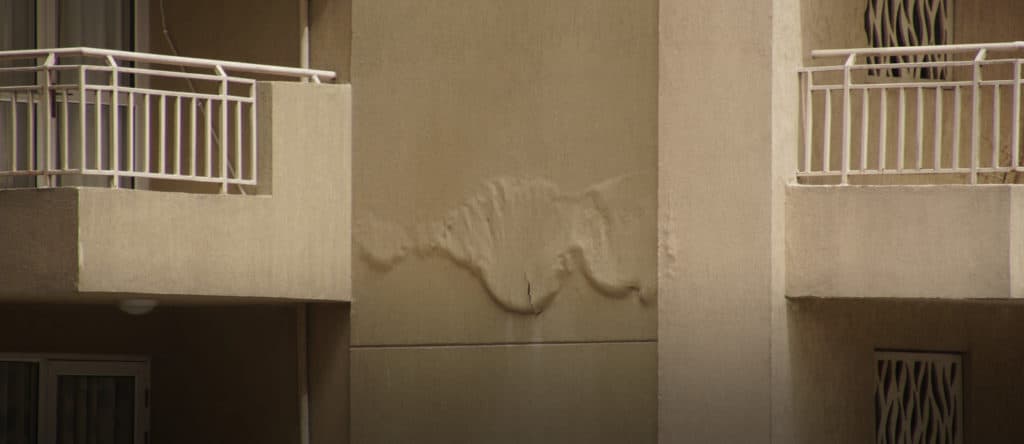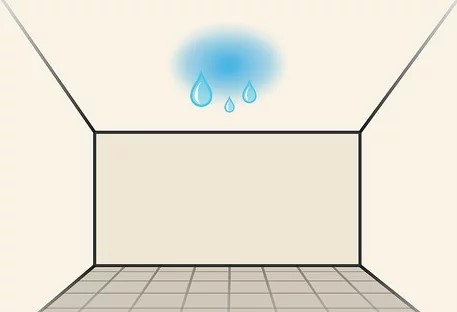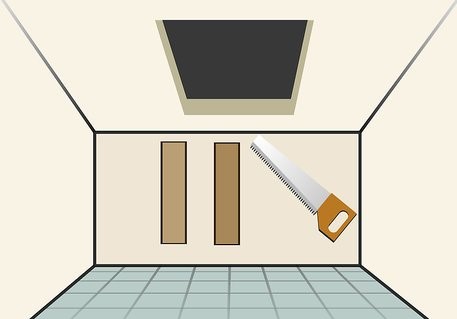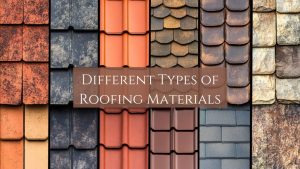
Water seepage, one of the most common and also one of the most annoying problems to tackle not only causes damage to one’s wallet but also to the very structure of the house in the first place. Water seepage typically starts from the basement of the house and the damage only then spreads like wildfire through the walls to the rest of the house.
If you are facing a water seepage problem in the basement of your house or in the rest of the areas alike, here’s everything you need to know about water seepage, right from what it means to how you can reduce the damaging impact it in your house.
What Is Water Seepage?
Water seepage is a term used to define the unsolicited flow of water from one area of the house to another through a porous and small hole. Water seepage is very common in areas that experience heavy rainfall because as the levels rise in the groundwater, the additional water creates hydrostatic pressure against the foundation, resulting in seepage.
How To Identify Water Seepage?
Though seepage may sound like an obviously identifiable problem, in reality, many house owners do not even realize its prevalence and hence, there are some signs one must always look out for. Here’s how you can identify water seepage-
- An obvious negative change in the indoor air quality due to the extra moisture
- An unpleasant, musty smell along with increased humidity in the basement
- Unsightly cracks, bubbling, peeling, warped paint, water stains on the walls due to the moisture
- Occurrence of rust on house appliances, especially the ones in the basement
- A pool of water on the floor; mostly beginning with the basement floor
What Causes Water Seepage Including The Basement?

Apart from heavy rainfall which remains the primary cause of water seepage in the house, there are a couple of other secondary factors that contribute to water seepage as follows-
-
- Basement underground windows or window wells that increase the possibility of seepage
- Clogging, cracking, and improper installation of windows cause water from the soil to seep into the well, instead of draining as it should
- A clogged drain pipe system that does not allow water to divert from your living space through a sump pump system as it should. The resulting moisture, hence, seeps through the foundation’s walls and causes seepage.
What Are The Effects of Water Seepage?
Water seepage does not only cause monetary damages to the house owners but also creates a generally uncomfortable and dangerous living space as a result of all the excess water and moisture in the house. Water seepage is recommended to be fixed as soon as it is identified to avoid the formation of mold and mildew in the house. Not only mold and mildew is dangerous to the health of the inhabitants but it is also an expensive affair to have it scaled at a later date.
Here are a couple of other effects of water seepage in one’s house-
- When water trickles into the electrical works of the house, it can also potentially spark a fire and pose a serious threat to the lives of the house dwellers
- The excess moisture due to water seepage can ruin your personal belongings
- Excess moisture also is a host of pests, bacteria, germs, insects, and rodents
- Water seepage can also cause permanent structural damages like foundation sinking or settlement, ultimately causing the building to collapse
How to Fix Water Seepage In Your Home

Step 1 to fixing water seepage is to pay attention to it immediately. Not only will you add to your water bills owing to a seepage but will also directly cause a setback to the environment. While some small seepages may be fixable on your own, it is typically advised to hire a professional plumber for this job. Not only will they do it better because it is their job in the first place, but they will also be well versed with rookie mistakes that you are more likely to commit. Professionals also use the latest methods and technologies to offer permanent solutions.
How To Prevent Future Seepage In the Basement
While fixing seepage is one thing, taking a step back to figure out how to avoid seepage can help one save. a lot of money by never having to get to the ‘fixing’ stage. The first step, by all means, is preventing leaks is stopping water in its tracks.
Here are some tips that can help You avoid future seepage in the house-
- Thoroughly clean the gutters to keep them clear of leaves and debris that could otherwise cause clogging
- Make sure your home’s downspouts direct water away from your home and not towards the foundation. You may also choose to use a downspout extension
- Double-check your sump pump which minimizes the hydrostatic pressure and reduces your basement’s chances of flooding
- If your house has a basement, and if you’re wondering how to stop water seepage in the basement, consider investing in a dehumidifier that will regulate your basement’s humidity levels
- Consider insulating your plumbing to prevent condensation as it can otherwise lead to mold and mildew growth
Final Thoughts: Why Does Water Seepage and Leakage Take Place?
We have understood that leakage and seepage is a common occurrence in urban houses, we have understood its detrimental effects, how to fix seepage and how to even prevent future seepage but do we understand why seepage even takes place?
What Causes Water Seepage?
Apart from heavy rainfall which remains the primary cause of water seepage in the house, there are a couple of other secondary factors that contribute to water seepage as follows-
- Basement underground windows or window wells that increase the possibility of seepage
- Clogging, cracking, and improper installation of windows cause water from the soil to seep into the well, instead of draining as it should
- A clogged drain pipe system that does not allow water to divert from your living space through a sump pump system as it should. The resulting moisture, hence, seeps through the foundation’s walls and causes seepage
- Water seeping through the bathroom tiles due to capillary action
- Water seeping through the gaps in the bathroom tiles and the cracks on the floor
- The gap between the metal sheet and concrete wall
Multiple elements of urban houses are made of concrete and it must be understood that concrete, by its very nature, expands and contracts as per changing weather, the expansion and contraction only further aggravated due to factors like air pollution, acid rains, poor construction quality, improper waterproofing, inefficient design, etc. This constant expansion and contraction causes cracks in the structures, hence causing water to pass through (water seepage) and also damage the TMT bars.
Water Seepage FAQs:
1. How do you fix water seeping through walls?
You can use a PU foam spray to stop seepage from damp walls on your own. You will need to visit the nearest hardware store and buy a gap-filling isolation joint expanding foam spray sealant. When purchasing the sealant, look for a sealant that offers high gap filling capability ( up to 1 inch or more), can be plastered, painted, sanded like concrete, has a long life, and is mildly flexible to sustain building movements. When applied to cracks, such a sealant can expand to fill the gap effectively and seal the joint. It must be noted that it will initially be in a liquid form but the foam cures upon expansion into a flexible material to then compress and decompress like foam, solving the issue. This, in turn, also reduces the probability of the beam (wall joint) cracking.
2. How do you stop underground water seepage?
Underground seepage and basement seepage can be fixed by simply sealing the cracks and gaps in walls as it will help reduce groundwater intrusion. You can have a sump pump installed on the basement floor which will help reduce hydrostatic pressure and automatically remove water from the basement.
3. Is water seepage covered by insurance?
No, water seepage falls under the category of maintenance issues and not the insured “sudden and accidental” damage category which excludes it from being insured.
4. What is the difference between seepage and leakage?
Leakage is an act of leaking whereas seepage, in particular, is the process by which a liquid leaks through a porous substance like walls and cracks.






